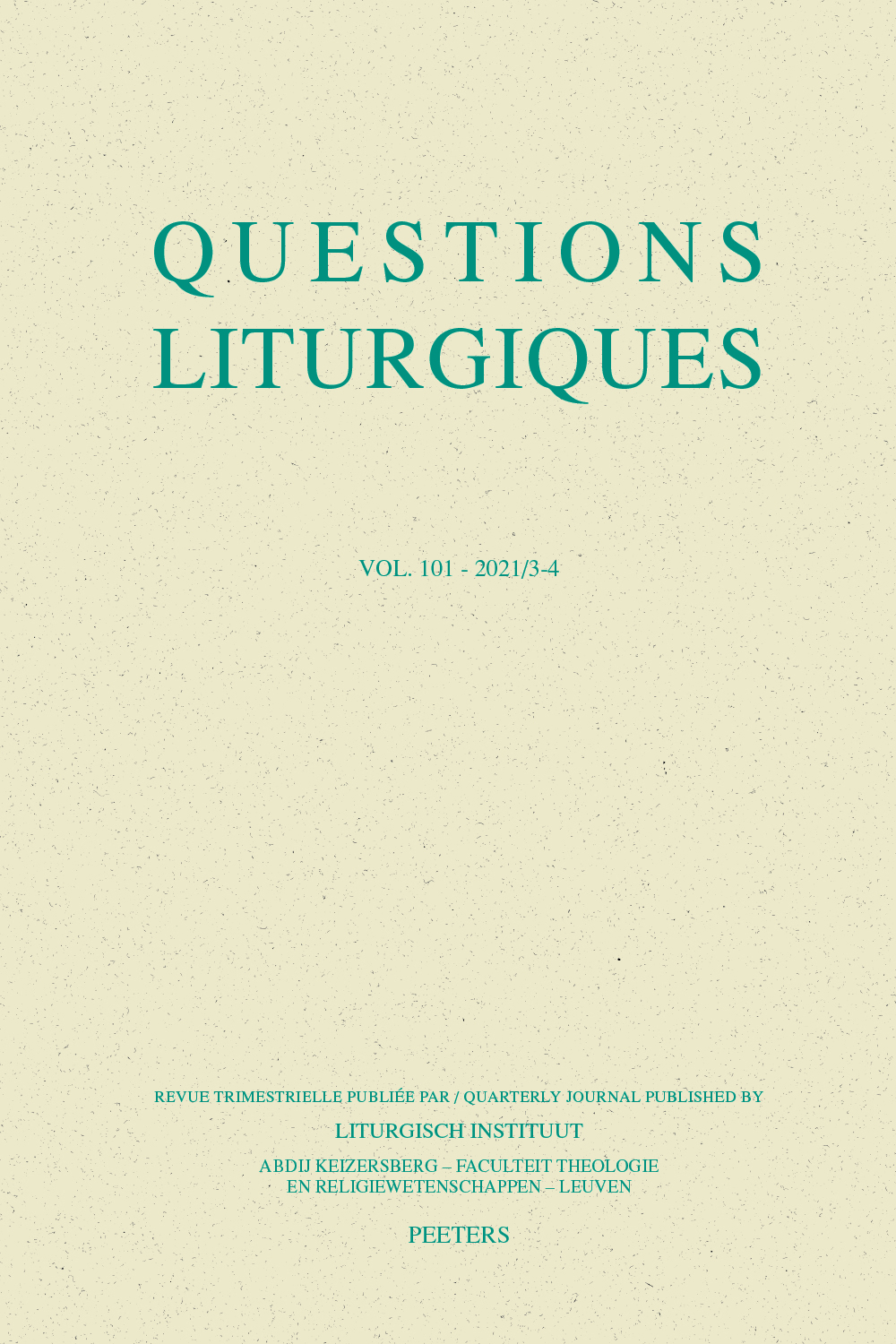 previous article in this issue previous article in this issue | next article in this issue  |

Preview first page |
Document Details : Title: Anti-Jewish Polemic, Christology and the Reception of Chalcedon Subtitle: Diadochus of Photice on the Ascension of the Lord Author(s): LEEMANS, Johan Journal: Questions Liturgiques/Studies in Liturgy Volume: 92 Issue: 4 Date: 2011 Pages: 324-339 DOI: 10.2143/QL.92.4.2164150 Abstract : This article offers a close reading of the Homily on the Lord’s Ascension by Diadochus of Photice. Within an overall monastic and spiritual oeuvre, this homily at first seems an isolated Fremdkörper. The presence of spiritual and monastic themes, such as divinization through a synergy of grace and free will and the ideal of humility, link it to Diadochus’ other writings. Other features in the sermon link it to Ascension sermons of other authors: the connection between the ascension event and Christology is one of these links, his use of quotations of the Psalms (e.g. Ps 8,2-3; 23,10 or 46,6) another one. Moreover, Diadochus’ sermon contains, just like other Ascension sermons, a surprisingly strong anti-Jewish polemic. Finally, the sermon constitutes an interesting example of how the Council of Chalcedon was received in Epirus. While reflecting on the Lord’s ascension, Diadochus’ outlines in surprisingly technical terminology the council’s Christological stance and makes his audience aware of the threat of monophysitism. Cet article présente une lecture serrée de l’Homélie sur l’Ascension du Seigneur par Diadoque de Photicé. À l’intérieur d’une oeuvre très monastique et spirituelle, cette homélie apparaît à première vue comme un corps étranger isolé. La présence de thèmes spirituels et monastiques, comme la divinisation par la synergie de la grâce et de la volonté libre et l’idéal de l’humilité l’orientent vers divers écrits de Diadoque. Certains traits dans ce sermon l’orientent vers des sermons sur l’Ascension d’autres auteurs: la connexion entre l’événement de l’Ascension et la Christologie est un de ces liens, l’utilisation de citations de psaumes (p.ex. ps. 8,2-3; 23,10 ou 40,6) en constitue un autre. En outre. Le sermon de Diadoque contient, comme d’autres sermons sur l’Ascension, une étonnamment sévère polémique anti-juive. Finalement, ce sermon constitue un exemple intéressant de la façon dont le Concile de Chalcédoine a été reçu en Épire. Tout en se référant à l’ascension du Seigneur, Diadoque souligne en une surprenante terminologie technique la portée christologique de ce Concile et élève sa portée à l’abri des menaces du monophysisme. |
|


